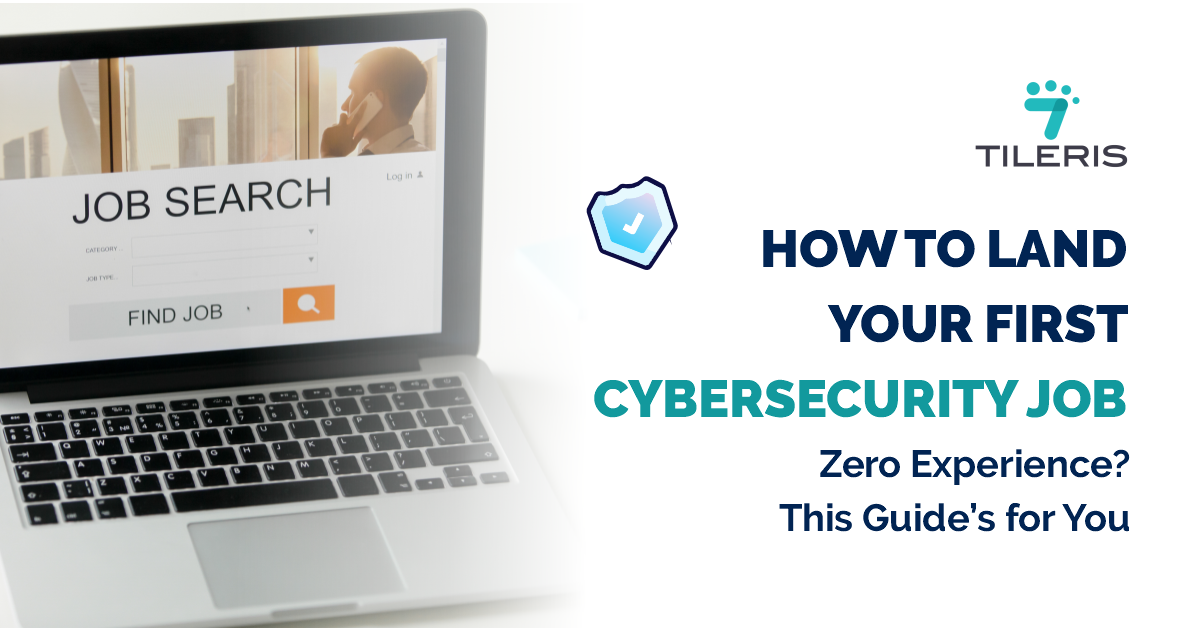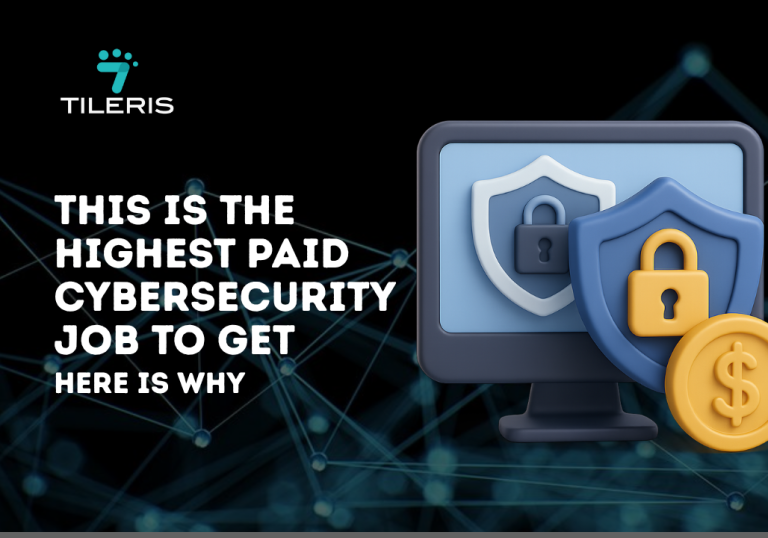How To Land Your First Cybersecurity Job With NO Experience
Introduction
Ever scrolled through job listings and felt like you needed a decade of experience just to apply for a “entry level” cybersecurity job? You’re not alone. Especially in this field, it seems like everyone wants someone who’s already battled a thousand digital dragons. But here’s the exciting truth: that’s a common misconception.
The cybersecurity job market is absolutely booming. We’re talking about a global shortage of over 3.5 million unfilled cybersecurity positions! That’s a massive gap that companies are desperate to fill. This huge demand means that, yes, you can break into this fascinating field even if you have zero traditional experience.
This guide isn’t just theory; it’s your step-by-step roadmap. We’re going to show you the exact strategies and actionable steps to land your very first entry level cybersecurity job. We’ll cover everything from building your skills to acing your interview, proving that passion and strategic effort can open doors.
Understanding the Entry Level Cybersecurity Landscape
We’ve cleared something up: the demand for cybersecurity professionals isn’t just high; it’s critical. Businesses of all sizes, from local shops to global corporations, are constantly under attack. They desperately need people who can protect their data, systems, and customers.
So, why are companies willing to hire entry-level cybersecurity job candidates? Because the skills gap is so wide, they often prefer to train motivated individuals who have the right foundational knowledge and a strong desire to learn. They understand that hands-on experience has to start somewhere!
You might be wondering, what kind of roles are we talking about? Here are some common entry level cybersecurity job titles and what they generally involve:
Security Operations Center (SOC) Analyst
Think of these as the first responders of the digital world. They monitor systems for suspicious activity, investigate alerts, and help shut down attacks. This is a very common starting point for an entry level cybersecurity career. Read about them from here
IT Security Specialist
Often works within an IT department, focusing on securing the company’s network, computers, and software. They might manage firewalls, security updates, and access controls.
Cybersecurity Analyst (Junior/Associate)
A broad role that can involve anything from analyzing security risks to helping implement security policies and managing security tools.
Information Security Assistant
Often helps with administrative tasks related to security, such as managing user accounts, organizing security audits, or helping with compliance documentation.
Junior Penetration Tester
This role involves trying to ethically “hack” into systems to find weaknesses before real attackers do. While sometimes seen as mid-level, very junior roles exist for those with a strong foundation and a passion for ethical hacking.
Salary expectations for entry level cybersecurity job positions can vary widely based on location, company size, and specific role, but generally, you can expect a competitive starting salary, ranging from $50,000 to $80,000 USD annually (and sometimes higher in high-cost-of-living areas). This field offers excellent growth potential!
Essential Skills You Can Develop Without Experience
Don’t have a computer science degree or years in IT? No problem. You can build foundational skills that employers truly value, often without spending a dime.
Technical Skills (The “Hard” Skills):
Understand how computers talk to each other. This includes things like TCP/IP (the language of the internet), what firewalls do (digital bouncers), and how VPNs (secure tunnels) work. You also need to get comfortable with both Windows (what most people use) and Linux (a popular choice for servers and security tools). Learn how to navigate, manage files, and understand basic commands.
You don’t need to be an expert, but also know what common tools do. Think antivirus software (your basic shield), and understand the idea of a SIEM (Security Information and Event Management) system – it’s like a security alarm monitoring station. Learning a simple programming language like Python or PowerShell can be incredibly powerful too. It helps you automate tasks and understand how security tools work. Many free online courses, like those on Codecademy, offer introductions.
Soft Skills (The “Human” Skills)
These are just as important as technical skills, especially for an entry level cybersecburity job. You need the ability to work under pressure. During an active security incident, things can get intense. Remaining calm and focused is vital. Cybersecurity is also a giant puzzle. Can you look at clues, connect dots, and figure out what’s going on?A tiny error or overlooked detail can be a huge security hole. You need to be meticulous.
You’ll need to explain complex technical issues to non-technical people, write clear reports, and work in a team. The cybersecurity landscape changes daily. You must be eager to learn new threats and technologies constantly.
Building Your Foundation: Education and Certifications
You don’t need a four-year degree to start, but you do need to learn. And luckily, there are tonnes such as Cybrary, SANS Cyber Aces, Professor Messer, YouTube Channels and Online Courses, and organizations like the NIST (National Institute of Standards and Technology) provide excellent cybersecurity frameworks and guides, and the CISA (Cybersecurity & Infrastructure Security Agency) offers valuable resources for individuals and organizations.
Certifications are often key to getting your first entry level cybersecurity job interview. They show employers you have a baseline understanding. CompTIA Security(Learn more about CompTIA Security+), CompTIA Network, and (ISC)² Systems Security Certified Practitioner (SSCP) are good starting points.
For some very specialized or government roles, a bachelor’s degree might be listed as a requirement. However, for many entry level cybersecurity jobs, practical skills and certifications are weighted much more heavily than a four-year degree, especially if you can demonstrate hands-on experience.
Gaining Practical Experience Without a Job
This is often the biggest hurdle, but it’s entirely surmountable. You can create your own “experience.”
- Volunteer Opportunities
Many local nonprofits desperately need IT security help but can’t afford to hire. Reach out to local charities, schools, or community centers. Offering your time to help them secure their basic systems is invaluable experience. Attend local cybersecurity meetups or conferences. Sometimes they have “capture the flag” (CTF) events or other hands-on challenges.
2. Personal Projects to Showcase:
These are your “portfolio” when you don’t have job experience. Use open-source tools to scan your home network for vulnerabilities. Document what you found and how you fixed it. Engage in forums like Reddit’s r/cybersecurity or r/homelab. Document your progress and what you learn.
3. Leveraging Transferable Skills from Other Industries
Don’t underestimate what you already bring to the table! Your past jobs likely gave you valuable skills.
4. IT and Technology Backgrounds:
If you’ve worked in IT, you’re already ahead. You’ve dealt with users, solved technical problems, and likely handled basic security issues like password resets or phishing reports. This is a common starting point for an entry level cybersecurity job.
Non-Tech Backgrounds That Apply
Many non-tech skills are highly valuable in cybersecurity. Highlight these “soft skills” on your resume and in interviews!
- Finance/Accounting: Strong understanding of risk assessment, compliance, and regulations.
- Healthcare: Expertise in privacy regulations (like HIPAA) and data protection is critical.
- Legal: Attention to detail, compliance, documentation, and understanding legal frameworks.
- Military/Law Enforcement: Discipline, attention to detail, crisis management, investigation skills, and working under pressure are all highly sought after.
Crafting Your Entry Level Cybersecurity Resume
Your resume is your first impression. Make it count, especially when you’re aiming for an entry level cybersecurity job.
Resume Structure and Format:
- Highlighting relevant coursework and certifications: Place these prominently, especially if you don’t have much work experience.
- Showcasing transferable skills effectively: Use action verbs and connect your past duties to cybersecurity concepts (e.g., “Managed customer inquiries, identifying potential security threats”).
- Including personal projects and lab work: This is your “experience” section. Describe what you did, the tools you used, and what you learned.
Key Sections to Include:
- Professional Summary: A short, punchy paragraph tailored to an entry level cybersecurity job, highlighting your passion, key skills, and career goals.
- Skills Section: A dedicated section listing both your technical skills (e.g., Python, Linux, Wireshark) and soft skills (e.g., analytical thinking, communication).
- Education and Certifications: Clearly list your degrees (if any) and all relevant cybersecurity certifications.
- Projects Section: Detail your home lab setups, security audits, blog posts, or contributions to online communities. Quantify achievements where possible (e.g., “Identified and remediated 3 critical vulnerabilities in home network”).
Common Resume Mistakes to Avoid:
- Overselling limited experience: Be honest about your experience level. Focus on potential and eagerness to learn.
- Generic, non-targeted applications: Tailor your resume and cover letter for every single job you apply for. Use keywords from the job description.
- Poor formatting and typos: Proofread meticulously. A messy resume suggests a lack of attention to detail, a critical skill in security.
Where to Find Entry Level Cybersecurity Jobs
Knowing where to look is half the battle.
- General job boards: Indeed, LinkedIn Jobs, and Glassdoor are always good starting points. Use keywords like “entry level cybersecurity job,” “junior security analyst,” or “SOC analyst.”
- Managed Security Service Providers (MSSPs), consulting firms, large enterprises, government contractors.
- Networking opportunities.
Alternative Entry Paths to Consider
Sometimes, the direct route to an entry level cybersecurity job isn’t the only one.
- Internships and Apprenticeships
- Starting adjacent and transitioning.
Conclusion
Breaking into cybersecurity without prior experience might seem daunting, but it is absolutely achievable. The booming job market is hungry for motivated individuals. By focusing on essential skills, leveraging free learning resources, building practical experience through labs and projects, and strategically networking, you can open doors to an exciting new job.
Remember, every expert started as a beginner. Your journey starts now. Take one specific step today – whether it’s setting up your first home lab, watching a Professor Messer video, or signing up for a free Cybrary course. Your future in cybersecurity is waiting!
We’d love to hear your success stories or answer your questions in the comments!
Read more on Cybersecurity Jobs here!
Ready to upscale your cybersecurity solutions today? Request a consultation with us.





